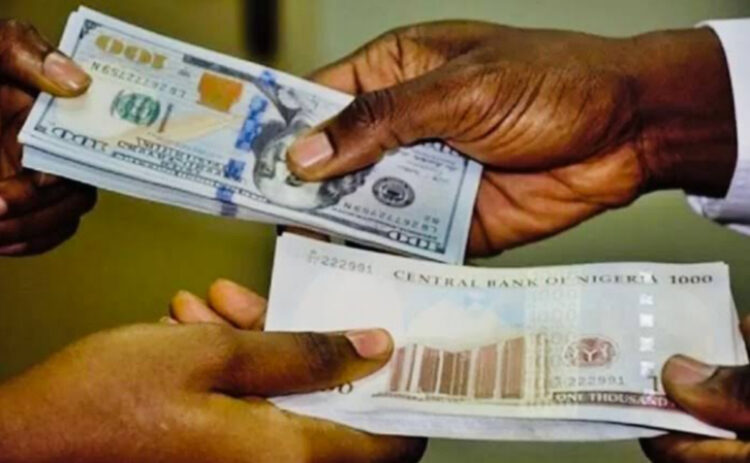Global business intelligence and market insights firm, Economist Intelligence Unit (EIU), has projected that Nigeria’s official exchange rate will weaken to N1,068.3/$ by 2025.
This was contained in its new country report for Nigeria.
EIU projected that there would be continued currency losses due to the large size of the parallel market and the low foreign exchange reserve of the country.
The report explained that the firm revised its exchange-rate forecast to front-load a larger devaluation in 2025, to reflect a widening gap between the official and parallel-market exchange rates.
“We expect another attempt at exchange-rate convergence that year, meaning a larger correction.
“We have adjusted our average exchange-rate forecast for that year to N1,068.3:US$1, from N914.4:US$1 previously. As our forecast for continued currency losses over time has not changed, the projected rate is also now weaker for later years.
“A larger devaluation will have limited pass-through, given the size of the parallel market, but our forecast for average inflation in 2025 has been revised up by two percentage points, from 15.1% to 17.1%,” part of the report read.
Commenting on Nigeria’s forex illiquidity, the EIU pointed out that after brief consolidation in June, a wide (35%) spread between the official and parallel-market exchange rates has re-emerged, reflecting an ongoing reluctance by the Central Bank of Nigeria (CBN) to allow free access to hard currency, and resulting in illiquidity in the Nigerian Foreign Exchange Market (NFEM, the official window).
“Pressing harder on currency reform would therefore mean a hefty devaluation, crushing any pretence of petrol price deregulation (assuming that higher pump prices are a political red line) and stretching a fragile fiscal position,” it added.
The country report also stated that additional demand in the formal market will be met with constrained supply due to the recent decision to eliminate import limitations on 43 imported commodities.
It further said the authorities haven’t shown enough willingness to implement an orthodox monetary policy to address the issues weighing on the naira, such as severely negative short-term real interest rates.
The EIU report also said a currency float may not succeed over 2024-28, as the CBN “lacks the firepower to adequately supply the market or clear a backlog of foreign exchange orders, valued at over US$6bn, which will keep foreign investors unnerved.”
It added that the CBN will continue to prop up the official exchange rate in the short to medium term through access restrictions, implying long lead times at the NFEM.
It also said about one-third of the official foreign reserves of about $33 billion are tied up in derivative contracts or loans.
“Sizable devaluations are expected in 2025—or possibly sooner—causing a 38.5% loss against the US dollar over the year, to N1,142.5:US$1 at end-December. However, we do not expect lasting commitment to a market-led naira, as the CBN lacks experience of conducting monetary policy under a float.
“High inflation and a continued spread with the parallel market will leave the exchange-rate regime unstable and result in periodic devaluations. We project a rate of N1,262.1:US$1 at end-2028, with a continuous spread with the parallel market expected,” it added.









